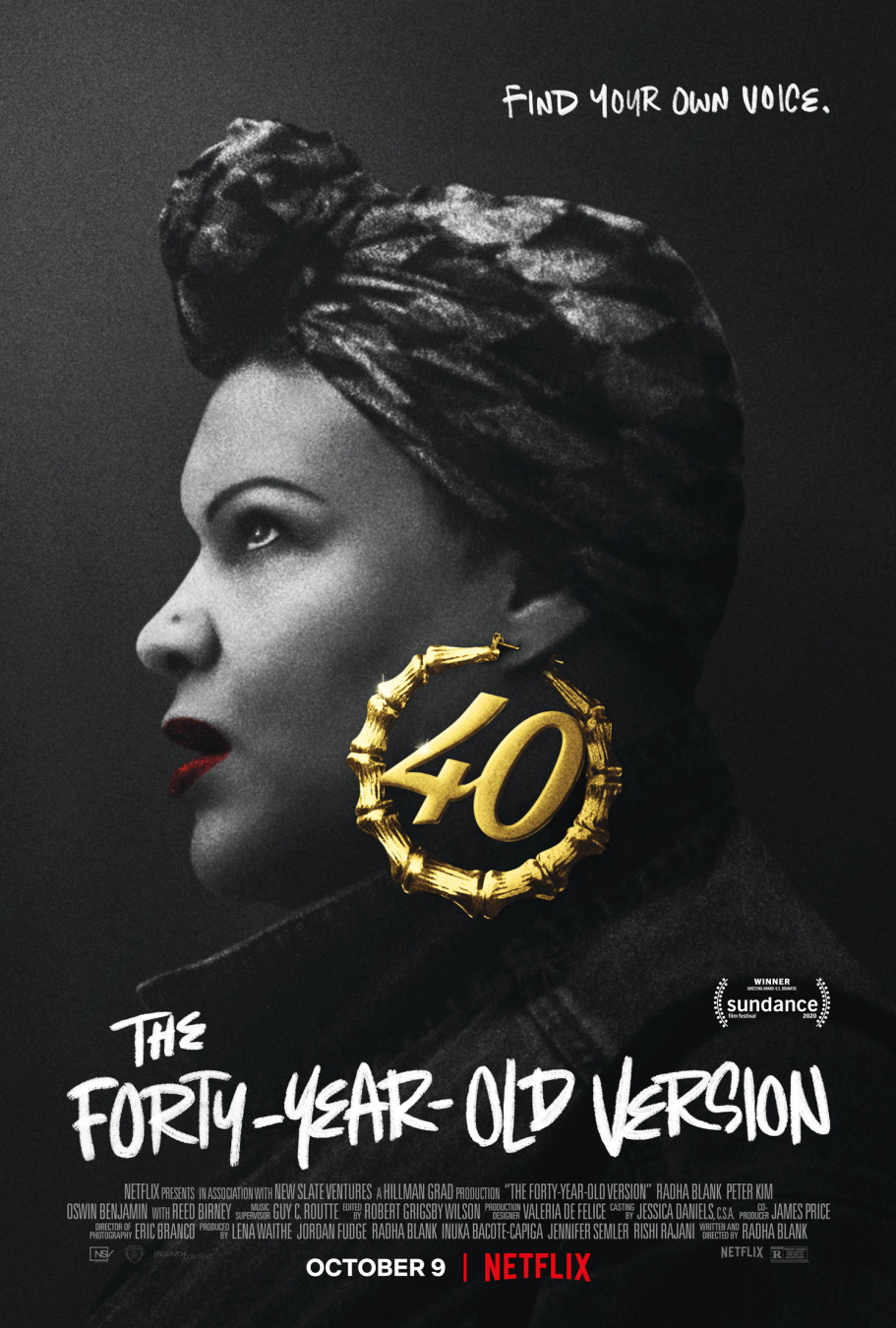By Imara Ikhumen
image source : https://www.imdb.com/title/tt4798836/
The Forty-Year Old Version is the extremely charming and very funny semi-autobiographical directorial debut of Rahda Blank. One of the first things that I took note of while watching it was how her choice to shoot in black and
white makes the film less about the vibrant city in which it takes place, and more about the main character who is inhabiting it. The lack of color draws attention to the fact that Radha (I say “Radha” to refer to the character and
“Blank” to refer to the writer/director) feels that she is being lost to anonymity in a sea of other often kooky characters. Despite this, Blank’s love of Harlem and her appreciation for the way that it raised her is ever-present.
Through the dialogue of The Forty-Year Old Version, it is clear that Blank comes from a theatre background. While this may sound like a negative critique to some, it felt very much appropriate for this film, seeing as Radha is a theater teacher and playwright, similarly to her real life.
Radha is a woman who is relatable to all ages but who is completely believable as a 40 year old woman as well. Though the title includes the words “forty year old”, the film can and will make people of all ages smile, cringe, groove, and maybe even cry. The FYO Version is quite fun to watch, and caused me to laugh out loud on many occasions.
There are things about the style and comedy that feel reminiscent of films written and directed by Cheryl Dunye and Spike Lee in the 80s and 90s. In fact, after making this observation, I discovered that Blank co-produced the Netflix show, She’s Gotta Have It, which does directly connect her to Spike Lee’s work. Still, this is not to say that her work is derivative; Blank does not copy either filmmaker. I only make this observation to say that if you enjoy either of the aforementioned filmmakers’ works, then you will also enjoy Blank’s, as she successfully pays homage in her own way. Blank’s voice as an artist and filmmaker is never lost in the film; not even when her character struggles to find her own voice.
Speaking of Blank’s voice, the musical aspect of the film was absolutely wonderful. Through her character’s performances, Blank shows respect for rap as a mode of expression and a method of protest. Through her powerful and very well-written lyrics, she shows how rap is, and can become even moreso, a mode of activism and self-realization.




